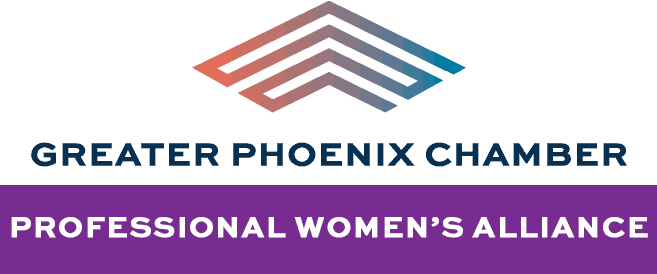 Join us on September 13thto hear from Doris Savron, Vice Provost of University of Phoenix as she shares strategies to increase your effectiveness while maintaining your authenticity. Don’t miss this opportunity to hear from an inspiring local leader and leverage your skills to develop your career.
Join us on September 13thto hear from Doris Savron, Vice Provost of University of Phoenix as she shares strategies to increase your effectiveness while maintaining your authenticity. Don’t miss this opportunity to hear from an inspiring local leader and leverage your skills to develop your career.
1. What do you think is the most significant barrier for women in leadership?
We are pushing through barriers and having an impact, however there still are significant obstacles women face in their pathway to leadership. According to World Economic Forum, it will take another 100+ years to close the gender gap globally (Gender Gap Facts) . Some people indicate we may even be going backwards in recent years. This is happening at the same time women are graduating college at higher rates than men and are employed in just about every industry. There is no short supply of qualified women to lead, yet women continue to be missing from positions of power in every industry.
One of the main barriers continues to be gender bias due to organizational structures which includes HR policies and practices like: recruitment, compensation, promotion strategies as well as organizational culture.
Many times, gender bias, comes in a form of unconscious bias, ingrained filters we apply from our life experiences that can lend themselves to stereotyping when unchecked. Do recruitment practices cast a wide enough net in finding possible candidates, are screenings done blindly (without applicant names), is there a diverse team making hiring decisions to help offset potential bias? Are benefits and policies flexible to allow for all employees to find work/life balance? Is someone paying attention to wage ranges for males and females in same roles?
How women are treated in the organization like meetings, in project assignments, and in development opportunities can create barriers. For example, research shows women are perceived negatively when they display characteristics like assertiveness and authority that societal norms tend to assign to males. Yet, those same characteristics are expected to be in observance to grow in leadership responsibilities. Microaggressions like interrupting women speaking or their “passion” for an idea or a project being equated to an “emotional” response while men are seen as “dedicated” when displaying the same “passion.” High profile project roles being assigned to men versus stereotypical project roles being assigned to women. All these things can create barriers and limit access to key networks women need to advance in their careers.
A second barrier is women’s own perception of readiness. Research indicates that women tend to hold themselves to a higher standard of readiness when applying for the next job or saying yes to a project than men do. Women tend not to apply unless meeting 100% of the qualifications while men apply when they meet 60% of the qualifications (Mohr, 2014). In addition to holding ourselves to a higher standard, we tend to experience imposter syndrome and questioning if we belong more often than men. Some of this can be attributed to seeing less people like us as we climb to higher layers of leadership roles creating feelings of isolation. Or perceptions that women do not belong in some leadership roles. Having supportive managers, a network of others like us to tap into, and a culture that does foster a sense of belonging can offset imposter syndrome.
2. How did you navigate power structures early on in your career versus later in your career when you stepped into a more formal leadership role?
Power dynamics exist in every structure, making them unavoidable. Earlier in a career it is all about building relationships and forming connections. We all make an impression on others formed from how we show up, what we contribute, how we treat others, and the investments we make in understanding the organizational culture. Trying to get to know people, finding ways to support others, and investing in our relationships with our own manager are great places to start early in a career. What people contribute early on can help build their brand. With a strong brand (regardless of title) can come influence. Early in my career I spent a lot of time observing, understanding how key decisions were made and who made them, and paying attention to who had influence on others. I asked those I respected for time and asked questions to learn from their experience. Most people I asked, were willing to give their time. I found that those same individuals over time would recommend me for projects or new roles, or professional development. I leaned on those relationships when I needed help. Those individuals became informal sponsors. As I moved into more formal and higher-level leadership roles, like the role I hold today I leverage my formal power to drive change or speak up when something is not right. Even when it may be uncomfortable to do so. I am more sensitive to the barriers and try to help break those down or point them out as necessary so change can happen. I try to amplify other women doing great work, making sure they get credit for their success, particularly those that have influence in the organization. We do not generally promote ourselves as often as men do.
3. Have you been in a position where you were treated differently than your male colleagues? Better or worse?
Yes, many times. Early on it was more obvious like can you order lunch for us, and can you take notes because I was the only women in the room. There were plenty of others in the room in similar roles that could have been asked to share the responsibilities or others outside the room that could have been asked to help. It caused me to miss portions of the meetings or trainings because I was expected to do that and participate. I have been talked down to, second guessed, interrupted in meetings, and noticed this same behavior towards other women in the room, but not men. I have been in meetings where I shared an idea, a male later repeated the same idea and would get credit and assigned the project as a result. I have had male coworkers answer questions that were addressed to me in meetings. I have even had vendors we worked with for projects go to my peer and manager (both males) to get decisions made or have discussions on strategy when I was the lead on the project and the one making the decisions. I noticed women on those vendor teams did not speak in meetings even when I asked them questions directly, they deferred to the males in the room. In that situation, I pointed it out to my peer and manager and asked them to always CC me in response indicating the vendors needed to collaborate with me and reinforced I was the decision maker. The behavior stopped after several of those emails and they started to collaborate directly with me. In many of the cases, I do not think there was intention to do harm or treat differently, they were often not aware of the behavior. As I grew in my roles and gained more confidence, I would start to share feedback when biased behaviors popped up and almost always the behavior stopped.
4. What advice would you give young women who are relatively green in their career? What would you like them to know?
Try to build relationships from the beginning, connect to a community of people who have similar aspirations to learn from, but also be on the lookout for ways to support other women. There has been research to show that sometimes we are not the best supporters of each other. Be intentional in your relationships and make the investment to grow your networks. These networks can serve as an advisory group to help you navigate challenges and decisions as you grow your career. Collectively we can do more and have a bigger impact, faster. Research shows that women benefit more from collaboration than competition and that those who have a close network of female contacts are more likely to get higher level positions and pay (Zalis, 2019). The second piece of advice, always do well in your current role. Sometimes individuals can get focused on the next role, that they let things slide in their current responsibilities affecting their performance. Many hiring managers believe your greatest predictor of future success is how you do in your current role. You are building your brand from day one.
5. Do you have any recommendations on books, websites, podcasts, community groups, etc., focused on communication tips for women and/or learning to be your authentic self in the workplace?
Some of my favorite podcasts include “The New Rules of Business” by Chief, and “Working Genius” by Table Group, “Women at Work” by HBR, “The Lost Art of Communication” by Molly and Tricia, “Difficult Happens; Effective Communication for Bosses” by Lara Currie
Some favorite books include:
A Woman’s Guide to Claiming Space: Stand Tall. Raise Your Voice. Be Heard.
How to Dance It Out, Stand in the Sun and Be Your Own Person by Shonda Rhimes
Lead from the Outside: How to Build your Future and Make Real Change
Ready to be a Thought Leader? How to Increase your Influence, Impact, and Success By Denise Brosseau
She Thinks Like a Boss: Leadership: 9 Essential Skills for New Female Leaders in Business and the Workplace.
Soundtracks: The Surprising Solution to Overthinking
The Waymakers: Clearing a Path to Workplace Equity with Competence and Confidence
References for Questions Above
Gender Gaps Facts. Retrieved from https://www.weforum.org/agenda/2021/03/global-gender-gap-facts on 08/10/2022
Mohr, T. S. (2014, August). Why women don’t apply for jobs unless they’re 100% qualified. Harvard Business Review.
Zalis, S. (2019, March 6). Power of the pack: Women who support women are more successful. Forbes



You must be logged in to post a comment.